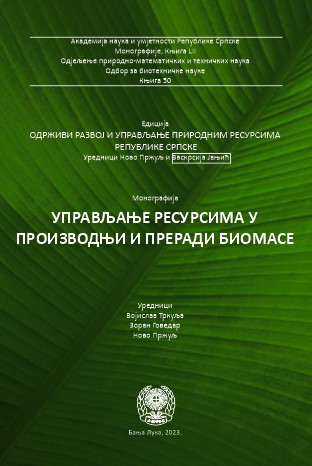Strategy and legal aspects of sustainable biomass supply for biodiesel production
DOI:
https://doi.org/10.7251/EORU2306393PKeywords:
Biodiesel, biomass, energy crops, oil, oil crops, rape seedAbstract
ndustrialization and demographic expansion have led to an increase in global energy demand. Evident climate change and high energy dependence have conditioned participation of EU in mission of transition from using fossil fuels to a low-carbon economy and achieving climate neutrality by 2050. In the realization of this mission, as first-class aim was determined the production and consumption of sustainable, stable, locally produced and competitive energy from renewable sources. The world is evident trend of growth the applicability of biomass to produce liquid biodiesel fuel. Biodiesel is a fuel obtained from renewable raw materials plant and animal origin. Biodiesel of plant origin can be obtained from: oilseed rape, sunflower, soybean, maize, flax, coconut, almonds, firewood, peanuts, etc. while ani-diesel is obtained from triglycerides (fats) of animal origin. Biodiesel or methyl ester is obtained by transesterification of higher unsaturated fatty acids and alcohols in the presence of a catalyst. The by-product is trihydroxyl alcohol, glycerol, which is widely used in industry. For the production of fatty acid esters, rapeseed oil is mostly used in European countries, soybean oil in the USA, palm oil in Malaysia and others. The advantage of biodiesel is that it is biodegradable and relatively harmless to the environment. The increasing production and application of biodiesel is a consequence of its good characteristics as an environmentally friendly "fuel"; significantly lower toxicity compared to diesel of fossil origin; bioavailability; raw materials renewability for its production and the possibility of application in internal combustion engines.
